
- Home
- India
- World
- Premium
- THE FEDERAL SPECIAL
- Analysis
- States
- Perspective
- Videos
- Sports
- Education
- Entertainment
- Elections
- Features
- Health
- Business
- Series
- In memoriam: Sheikh Mujibur Rahman
- Bishnoi's Men
- NEET TANGLE
- Economy Series
- Earth Day
- Kashmir’s Frozen Turbulence
- India@75
- The legend of Ramjanmabhoomi
- Liberalisation@30
- How to tame a dragon
- Celebrating biodiversity
- Farm Matters
- 50 days of solitude
- Bringing Migrants Home
- Budget 2020
- Jharkhand Votes
- The Federal Investigates
- The Federal Impact
- Vanishing Sand
- Gandhi @ 150
- Andhra Today
- Field report
- Operation Gulmarg
- Pandemic @1 Mn in India
- The Federal Year-End
- The Zero Year
- Science
- Brand studio
- Newsletter
- Elections 2024
- Events
- Home
- IndiaIndia
- World
- Analysis
- StatesStates
- PerspectivePerspective
- VideosVideos
- Sports
- Education
- Entertainment
- ElectionsElections
- Features
- Health
- BusinessBusiness
- Premium
- Loading...
Premium - Events
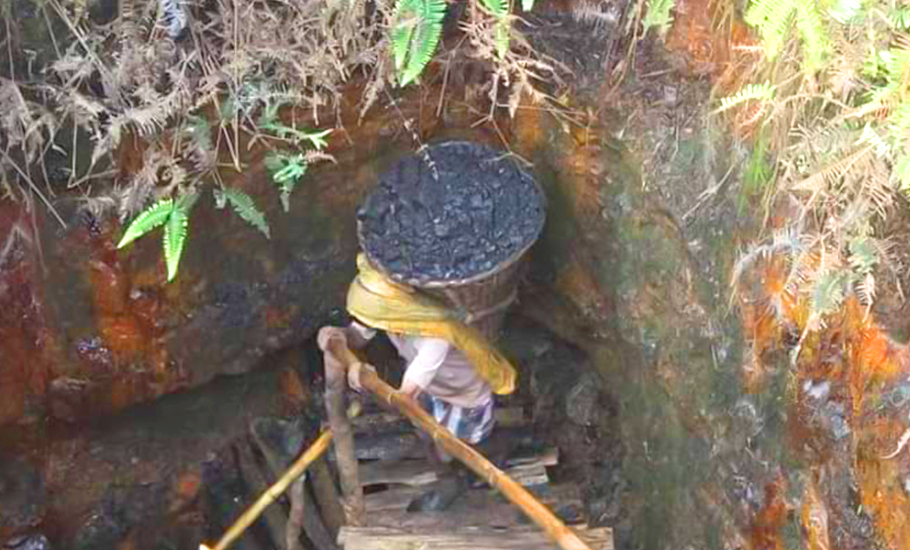
How rat-hole mines in Assam are ‘eating up’ workers

It was just around 6 in the evening at Makun village in Assam’s Tinsukia district on January 12, but it was already dark. The darkness notwithstanding, for 24-year-old Urvashi Moran, everything seemed bright and beautiful. The next day whole of Assam was to celebrate the harvest festival of Magh Bihu, but the real reason Urvashi was looking forward to the day ahead was that her husband...
It was just around 6 in the evening at Makun village in Assam’s Tinsukia district on January 12, but it was already dark. The darkness notwithstanding, for 24-year-old Urvashi Moran, everything seemed bright and beautiful. The next day whole of Assam was to celebrate the harvest festival of Magh Bihu, but the real reason Urvashi was looking forward to the day ahead was that her husband Pranjal Moran (28) was to return home to celebrate the festival with family. He had called to inform her about his impending visit just minutes ago from a friend’s phone.
Pranjal, who hailed from the Adivasi community, worked in Tinkusia’s rat-hole mines and didn’t visit home more than once a month for a maximum of two-three days. But on January 13, Pranjal did not visit despite his promise to his wife. Pranjal’s parents, wife Urvashi and the couple’s three-year-old son spent Magh Bihu in their mud-and-bamboo house waiting for him to return. Since the rat-hole mines are in areas where mobile network is mostly absent, there was no way Urvashi could have known.
Thinking her husband was caught up with work, Urvashi tried hard to appear patient, calming her in-laws and attending to her son. Deep within she was anxious and worried. A couple of days later when she still did not hear from Pranjal, Urvashi went to the nearest police station for help. The police were reluctant and officials turned her away refusing to even lodge a complaint, saying the matter wasn’t under their jurisdiction. On February 4, nearly a month after Pranjal had been missing, she managed to file a complaint at the Ledo Police Station in the heart of the coal mining belt in Tinsukia. But no action followed.
Urvashi was short on money and resources to find her husband, but her determination to find him didn’t fall short. She gathered a few men and women from her village and staged a protest in Guwahati, well over 450 km from her village Makun. As the local media picked up the story, the administration finally took note.
Over nearly three months later, on April 7, a team of police officials led by Inspector General of Police (North East Range) Jitmal Doley recovered Pranjal’s body from a sack in a rat-hole mine in the Tirap Colliery run by North Eastern Coalfields, a subsidiary of government-owned Coal India Limited (CIL).
In the rat-hole mines of Assam, many such bodies never even get the last rites because those running the mines turn the families away.
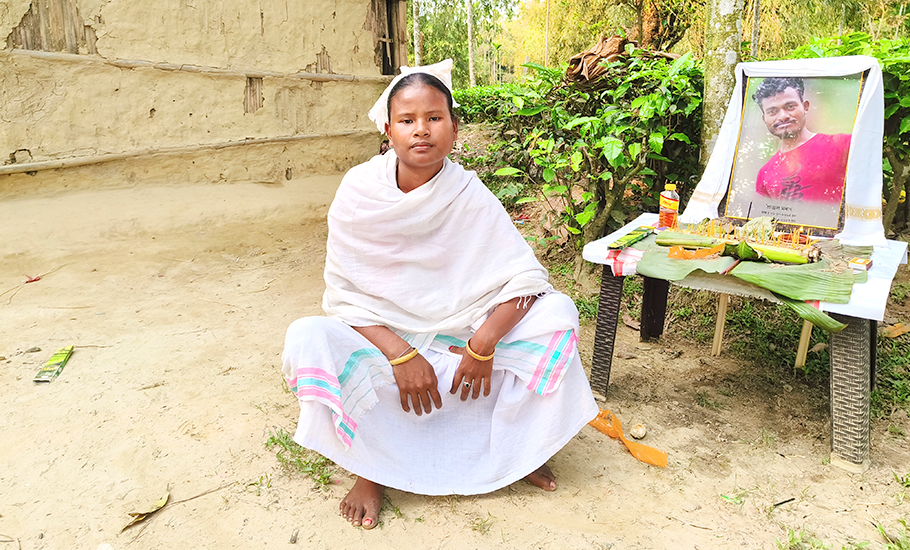
“I was in love with Pranjal and then I married him. How could I let the matter of his disappearance just die down. What answer would have I given to my son? I was determined to know what happened to him. No matter what I had to get to the truth,” Urvashi told The Federal.
“Pranjal joined the coal mining work to make some money. Earlier, he worked in a factory in Tinsukia which paid very little. He had told me his work involved a lot of risk but he was getting paid well. He was very polite and a good human being who cared for his family. I don’t know how our family will run because Pranjal was the sole bread-winner,” she said.
Rat-hole mining involves extracting coal and other minerals by digging narrow tunnels deep into the earth and sending down workers using trolleys and ladders to remove the minerals manually. The work is dangerous and happens with no safety protocols in place. People generally work in two shifts – 4 am to 10 am and then from 2 pm to 6 pm – because the day temperatures are unbearably hot inside the mines.
The illegal business by some estimates is worth Rs 2,000 crore per month. To cover up the wrongdoings, mine owners in some cases offer families money. In most cases they just deny any knowledge about the whereabouts of missing people.
Urvashi says she was offered Rs 5 lakh by the authorities to keep mum about her husband’s disappearance.
“The authorities at the mine tried to cover up the incident by giving me Rs 5 lakh as compensation saying he died during an accident. But I told them I want my husband’s body. I want to know how he died. They refused. After that a search team from my village went to the area to look for my husband’s body but they couldn’t find it,” she said.
Urvashi’s story of despair is not an isolated one. Deaths and accidents are common at Assam’s illegal rat-hole mines.
Families of Karthik Gowala and Vijay Munda, both Adivasis, claimed the duo died in the rat-hole mines in February this year and those running the mine refused to provide their bodies.
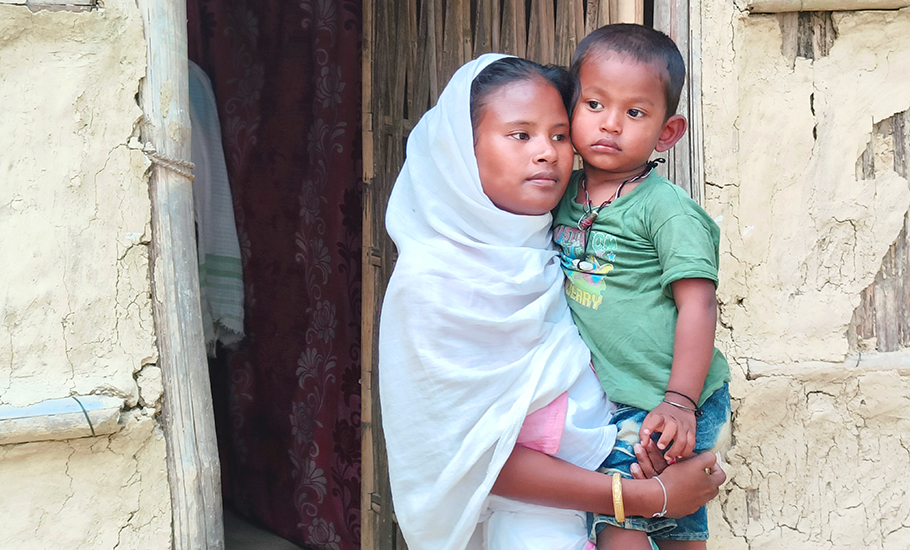
In September 2022, three labourers from Jogighapa in Bongaigaon district — Sahidul Islam, Hussain Ali and Aasmat Ali — died when a poisonous gas leaked at the Tikak Colliery in Malu Gaon under Margherita town.
What exacerbates the tragedies is the apathy shown by coal mafia in acknowledging deaths and returning the bodies to the families given that the whole work is illegal. Since the people who take up the dangerous work are poor and often unlettered, the mining mafia is able to find labour easily despite the risks involved.
“The families of Karthik Gowala and Vijay Munda are very poor. Both families didn’t receive any compensation from the government. They got nothing from those running the mine as well. Their families are struggling to make ends meet,” Jargnel Minz, secretary All Adivasi Students’ Association of Assam (AASAA) for Tinsukia told The Federal.
Given that the work is illegal and those doing it poor, no social security net covers them.
“Often workers die due to landslides in rat-hole mines and to cover up the incident their bodies are disposed of. Workers are paid Rs 1,000 to Rs 1,500 per day in this line of mining. Those working at the illegal mines are migrant workers from Goalpara, Nalbari and other areas of Assam, apart from Tinsukia’s local population,” said Umananda Mudoi Moran, Tinsukia district secretary of Chatra Mukti Sangram Samiti.
Umananda Mudoi Moran is a cousin of Urvasi and helped her in the fight to get her husband’s body. The mafia doesn’t just deny families the bodies of their loved ones but offers no social security to those in this line of back-breaking work.
Speaking to The Federal, Ignatius Ekka, advocate from Johar Legal Associates, a lawyers’ collective based in Doom Dooma town of Tinsukia, said, “There is no social security for the people working in illegal mining. The whole thing is illegal that is why there is no social security. Despite being illegal, rat-hole mining has been mushrooming in the Margherita-Ledo area and mostly poor people are working as labourers at the mines. People who engage the workers exploit them. At any given time, close to 3,000 people are associated with the illegal mining. The youths are also attracted towards the work because it gets them Rs 1,000-1500 per day.”
“Karthik and Vijay died due to leakage of methane in the rat-hole mine. Their families, however, haven’t received any compensation till today,” Ekka said.
“Karthik started working in the coal mines because he needed money for the treatment of his ailing wife. His wife died in 2022 but he continued working in the mines for his children,” said Kranti Gowala, Karthik’s brother.
No plugs on rat-hole mining
In 2014, the National Green Tribunal imposed a ban on rat-hole mining in Meghalaya after a series of deaths and serious accidents.
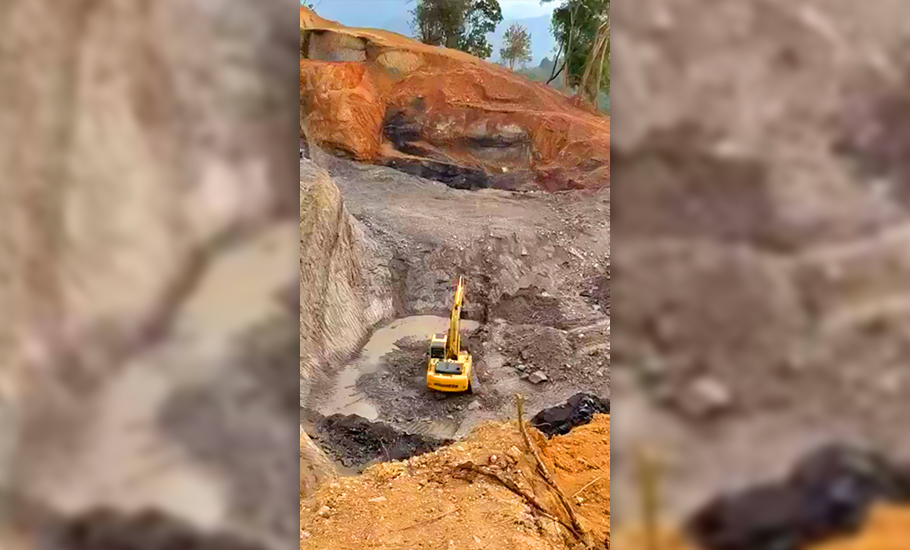
In July 2020, the Assam government formed a one-man committee comprising a retired judge of Gauhati High Court, Justice BP Katakey, to probe allegations of illegal mining in Dehing Patkai.
The panel’s report, tabled in the state assembly in December 2021, stated that the North Eastern Coalfields, a subsidiary of CIL, had illegally extracted coal worth Rs 4,872 crore from the mining sites inside Dehing Patkai between 2003 and 2020 without obtaining necessary permission.
Despite the ban, large-scale extraction of coal is going on unabated in Tinsukia and Karbi Anglong districts of Assam. The area being recklessly mined include reserve forests.
“Rat-hole mining has been operating in Ledo-Margherita area of Assam and parts of Arunachal Pradesh. There are nearly 1,000 rat-hole mines in the area and the coal mafias are engaging labourers to extract coal from the Patkai hill top. The Gauhati High Court has already banned it but still it has been going on unabated under the nose of the district administration. Coal mafias who are backed by politicians are ruling the roost in the entire region,” said Devojit Moran, an environmental activist.
“The mining work has adversely impacted environment. The Patkai hills lost their greenery due to the unabated illegal mining. The coal mafias use JCBs and all kinds of modern technology to extract coal from the Patkai region,” the activist said.
“While coal mining was stopped legally, but under the leadership of a very strong Cabinet minister of the BJP’s ruling Assam government, illegal coal mining syndicate is enjoying a free run. Since it is well known to the people of Margherita sub-division and even in upper Assam, they are afraid to lodge even an FIR against the coal thieves. People know Tinsukia district administration is going to keep mum and they would do nothing against the coal syndicate,” he said.
“It’s also a matter of shame that few months back the Assam Jatiya Parishad and a few other organisations started an indefinite road block to stop illegal coal syndicate and to know the whereabouts of Pranjal Moran, but the so-called road blockade was removed within three days by the organisations after their vested interests were served. The mining syndicate is working without any constraints still. We must salute Urvashi Moran for how bravely she fought for her missing husband,” Devojit said.
Even though Pranjal’s body was recovered, the demand for bringing those responsible to book remains.
“We demand immediate intervention from chief minister Himanta Biswa Sarma to stop the illegal coal syndicate. We also appeal to Prime Minister Narendra Modiji to crackdown on the illegal mining going on in the region,” said Ranjan Chowdhury, Secretary, Communist Party of India(CPI), Tinsukia district council.
“The main accused of the case B Ganesh and his gang members are still at large. We demand police to crack down on all illegal mining and nab those running these death traps,” he added.
The police, however, claim action has been taken.
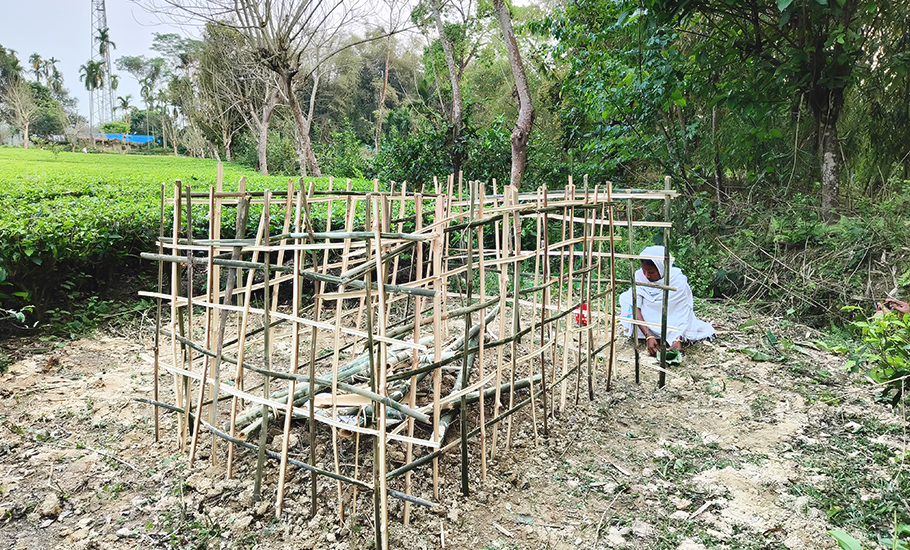
“So far we have arrested 18 people who were involved in connection with the Pranjal Moran case. We have already started a crackdown against illegal mining and in several arrests have been made in this regard. The terrain is tough because the Patkai hills run into Arunachal Pradesh and there are thick jungles in between. Whenever we plan an operation, the mafia get a whiff and hide,” Tinsukia superintendent of police Abhijit Gaurav said.
“We have already told CIL to monitor the illegal activities going on in the coal fields. They have their own security and they are monitoring the activities,” Gaurav said.
But numerous families who lost their loved ones to the rat-holes await answers and relief.
